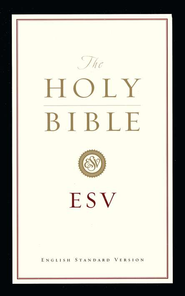 Though I've read the Bible through in a school year multiple times, I had never read through the Bible in a calendar year, until now.
Though I've read the Bible through in a school year multiple times, I had never read through the Bible in a calendar year, until now.
I made my own reading plan, dividing up the Bible into four sections, reading about 2 chapters each weekday from each section:
Genesis - Esther (History)
Job - Malachi (Poetry and Prophecy)
Matthew - Acts (Gospel Narrative)
Romans - Revelation (Epistles)
Although I didn't stay completely on schedule, I appreciated the discipline and reminder to be daily in the Word. Every believer should try to read through the Bible in a year at least once in their lifetime.
Here are a few random thoughts from a year of reading God's Word:
- I need to study more eschatology. Reading continual statements like, "let him who has ears to hear, let him hear" and "blessed is the one who keeps the prophecy of this book" - and not understanding what I was reading was frustrating and humbling
- I am reminded anew of the amazing internal consistency of this book written by God through multiple people through out multiple centuries.
- I am reaffirmed in my conviction that the Bible is ultimately one story, and that is the story of God's glory as revealed in Jesus Christ.
- I enjoyed reading sermon notes I have taken over the past few years (I've had this Bible about 3 years), especially through the Minor Prophets as they reminded me of the excellent series Mark Oshman preached last year and how richly blessed I was through it.
- I realized that to really dig down into, retain, and meditate on God's Word I need to take it at a much slower pace. I got behind schedule when I took time to dwell and study a passage. I'm looking forward to using this resource to sink my teeth into the juicy steak that is the book of Isaiah over the first quarter of 2013.
- It was a pleasant providence that my reading ended with the book of Esther, for whom we named our daughter
- "[God's] promise is well tried, and your servant loves it." Psalm 119:140
What's your plan for feasting on God's Word in 2013?

 Though I've read the Bible through in a school year multiple times, I had never read through the Bible in a calendar year, until now.
Though I've read the Bible through in a school year multiple times, I had never read through the Bible in a calendar year, until now.

